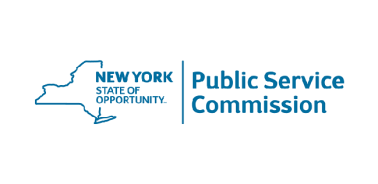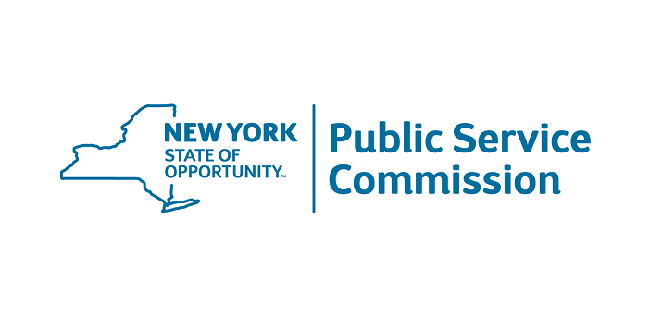 The New York State Public Service Commission has announced that it expects the state’s utilities will have adequate supplies of natural gas and electricity on hand to meet the demands of residential and commercial customers in New York State this winter.
The New York State Public Service Commission has announced that it expects the state’s utilities will have adequate supplies of natural gas and electricity on hand to meet the demands of residential and commercial customers in New York State this winter.
Commission Chair Rory Christian said, “…the utilities have hedged approximately 70 percent of the estimated statewide full service electric residential energy needs and 51 percent of the estimated statewide gas customer needs to mitigate any market price swings this winter.”
The gas utilities serving New York State have adequate natural gas supply, delivery capacity, and storage inventory to satisfy current firm customer demands under severe winter design conditions for this winter. Gas utilities continue to file long-term gas system plans, as required by Commission orders. The Department of Public Service (Department) continues to review and analyze gas utilities’ long-term plans separate from the present annual winter preparedness review. Staff cautioned that reliability margins are tight in both the electric and natural gas sectors and investments will be needed to improve resilience and to address various contingencies.
Department staff expects that full-service residential electric commodity bills will be similar to last winter’s, on a statewide average. Based on current data indicating lower forecasted commodity prices, coupled with a normal weather forecast and increased delivery rates for several gas utilities for this winter, customer’s gas bills are expected to be higher than last year’s, on average. Customers may see varying price levels based on their service territory, actual experienced weather, and individual usage.
Natural Gas and Electric Price Forecast: On a statewide average, a residential electric customer using 600 kWh per month is expected to pay about $60 per month for supply this winter, up 1.4 percent from the same period a year ago, but the actual amount varies by utility. Meanwhile, the average residential customer using 719 therms of natural gas can expect to pay an estimated $224 per month during the winter heating season (November through March), up 8 percent from the same period a year ago, but the actual amount will vary widely by region due to the weather and usage. A colder-than-normal winter will cause usage and bills to increase. The state’s investor-owned utilities take steps to reduce the volatility of electric and gas supply prices to their full-service residential customers.
New Yorkers can take advantage of cost-efficient programs in anticipation of winter to adopt energy efficiency and electrification solutions for homes and businesses. Beginning November 1, applications will be accepted for the Home Energy Assistance Program (HEAP) which can provide more than $900 to eligible homeowners and renters depending on income, household size and how they heat their home. To qualify for heating assistance from HEAP, a family of four’s annual income cannot exceed $80,165.
When income-eligible customers enroll in HEAP, they are automatically enrolled in utilities’ Commission-approved EAP discount programs that provide further monthly discounts on gas and electric utility bills.
During the winter months, New Yorkers can take the following steps to mitigate energy costs:
Take immediate action to be more energy efficient. NYSERDA offers energy saving tips for residents and homeowners, as well as businesses that can lower energy usage. NYSERDA also offers a range of home energy efficiency programs that can help save energy and reduce costs over time. Income-eligible customers may qualify for reduced cost or free energy upgrades to their homes through EmPower New York and Assisted Home Performance with ENERGY STAR® programs.
Homeowners should also check with their local gas and electric utility companies to access discounted products and services that can help them lower their energy costs all year long.
The New York Energy Advisor can help income-eligible New Yorkers locate programs that help them spend less on energy and create healthier and more comfortable spaces. With the New York Energy Advisor, consumers answer simple questions and get connected with energy-saving offers in New York State. Sponsored by NYSERDA and utilities, qualified New Yorkers can get help paying utility bills, receive special offers on heating assistance, and more.
Sign up for Community Solar. Community Solar allows New Yorkers, including renters, co-op and condo owners, and businesses to save money every month on their electric bills. Consumers can subscribe to a Community Solar project where available and start receiving credits on their electric bill for the clean energy produced by a solar array.
Get a free energy audit. Homeowners across New York State are eligible for a free home energy assessment through NYSERDA’s Residential Energy Audit Program. Home energy assessments are available both in-person and using remote technologies. Trained and qualified contractors who provide energy assessment services can help homeowners decide which energy improvements are worth investing in, install the improvements, and assist in connecting homeowners with NYSERDA’s low-interest financing programs.
Reduce your business or building’s energy costs. Community Energy Advisors across New York State can help residents, businesses, and multifamily building owners reduce their energy use and costs.
Join a NYS Clean Heating and Cooling Campaign. Participating in a campaign eases the process of replacing a community member’s current heating or cooling system with clean heating or cooling technology by connecting members with pre-qualified contractors and outlining potential incentives, tax breaks, financing, and payment options. Experienced contractors can give a home or business owner a holistic assessment to determine if their home or business space will also benefit from weatherproofing upgrades that can further increase comfort and reduce energy bills.
Know your rights and protections. The New York State Home Energy Fair Practices Act has comprehensive protections for residential customers regarding their utility services. These rights include the option to pay bills in installments, a cap on late fees, sufficient notice prior to shutoff of services, and protections for those on a fixed income or with medical conditions.
Consider bill payment options. When getting in touch with your utility provider, inquire about billing options that allow for deferred payments or “budget billing” options that balance out bills that are higher in one season and lower in another. This can structure your payments and make it easier to navigate costs.

